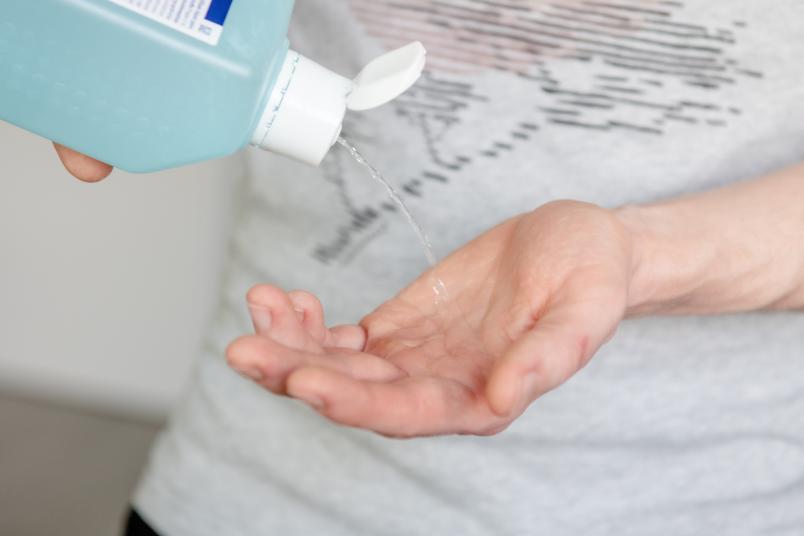
Medicine
WHO-recommended hand disinfectants inactivate monkeypox viruses
WHO formulations can be quickly and easily prepared at home.
People in many countries are contracting monkeypox, even though they have not travelled to any regions where the virus is mainly circulating. The World Health Organisation (WHO) therefore classifies monkeypox as a public health emergency of international concern. A research team from the virology departments of Ruhr University Bochum, Germany, and the Heinrich Heine University Düsseldorf, Germany, has investigated whether the virus can be inactivated by two disinfectants recommended by the WHO. They found that both disinfectants efficiently inactivate the virus during a 30 second application. The researchers published their findings in the journal Emerging Infectious Diseases of 17. November 2022.
Alcohol-based disinfectants are effective against enveloped viruses
Pox viruses can be transmitted not only through direct contact with body fluids, but also via contaminated hands. “To prevent the spread of monkeypox, good hand hygiene is therefore essential,” points out lead author Dr. Toni Meister.
To test the effectiveness of the disinfectants recommended by the WHO, the researchers brought the viruses into contact with one of the recommended WHO formulations as well as with their main components ethanol and isopropanol individually. After an exposure time of 30 seconds, they determined the number of virus particles that were still infectious compared to the baseline value. “We could show that both WHO disinfectants sufficiently inactivate the virus,” says Professor Eike Steinmann.
Since most commercial disinfectants also contain ethanol or isopropanol, they should also inactivate the virus. “The critical factor is the concentration of the ingredients, but you can usually read this on the packaging,” says Toni Meister. “Disinfectants containing 40 to 60 per cent ethanol by volume or 40 per cent isopropanol or more are effective against monkeypox.”